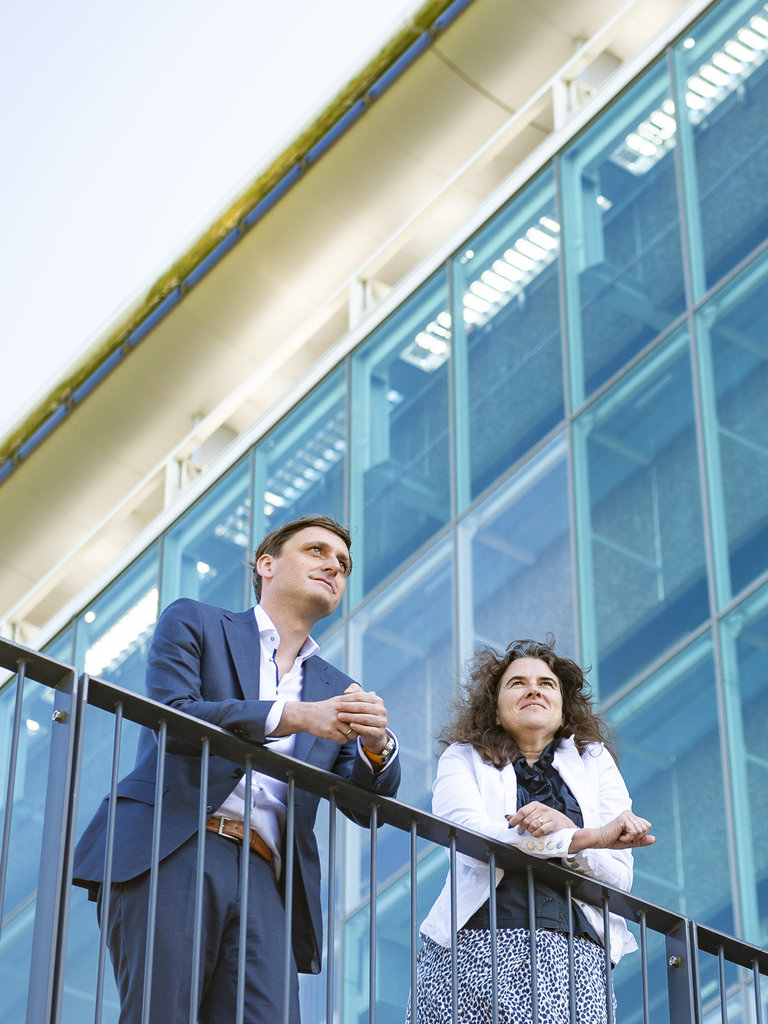
‘NMi and VSL are in every corner of your home’
NMi metrology institute moves to TU Delft Campus
28 June 2018, Delft
Text by: Jurjen Slump
Photography by: Marcel Krijger
With the arrival of NMi at Delft, a national “hotspot” is created in the field of metrology. The institute is setting up office in the same building as VSL. This means that, from July onwards, everything related to reliable measurements - both the development of scientific standards and practical applications - can be found under one roof at Thijsseweg 11, in the southern part of the TU Delft Campus. We took this opportunity to talk to the directors of the two organisations, Fabienne van Booma (NMi) and Vincent Fokkema (VSL), about their work.
The general public may not be familiar with the term ‘metrology’ or the names ‘NMi’ and ‘VSL’, but that doesn’t make the work of these companies any less relevant. Van Booma puts it in a nutshell: “NMi and VSL are in every corner of your home.” “We’re there right from the time your alarm goes off.” Go ahead and check: the correct time in the Netherlands is determined by VSL with the help of an atomic clock. If you turn on the heater to take a shower, the energy consumption is monitored via smart meters certified by NMi.
Stopping en route to work to refuel? You want to be absolutely certain that a litre of petrol is really a litre. Sending a package via the post? You don’t want to pay for more weight than you’re shipping. We could go on and on. Charging poles for electric cars, breathalyser tests for the police, the butcher’s scales or radiation equipment at the hospital: they all need to be calibrated and tested. Lots of things involve measurement technology which in one way or the other originates from these two organisations. “It actually covers everything,” says Fokkema.
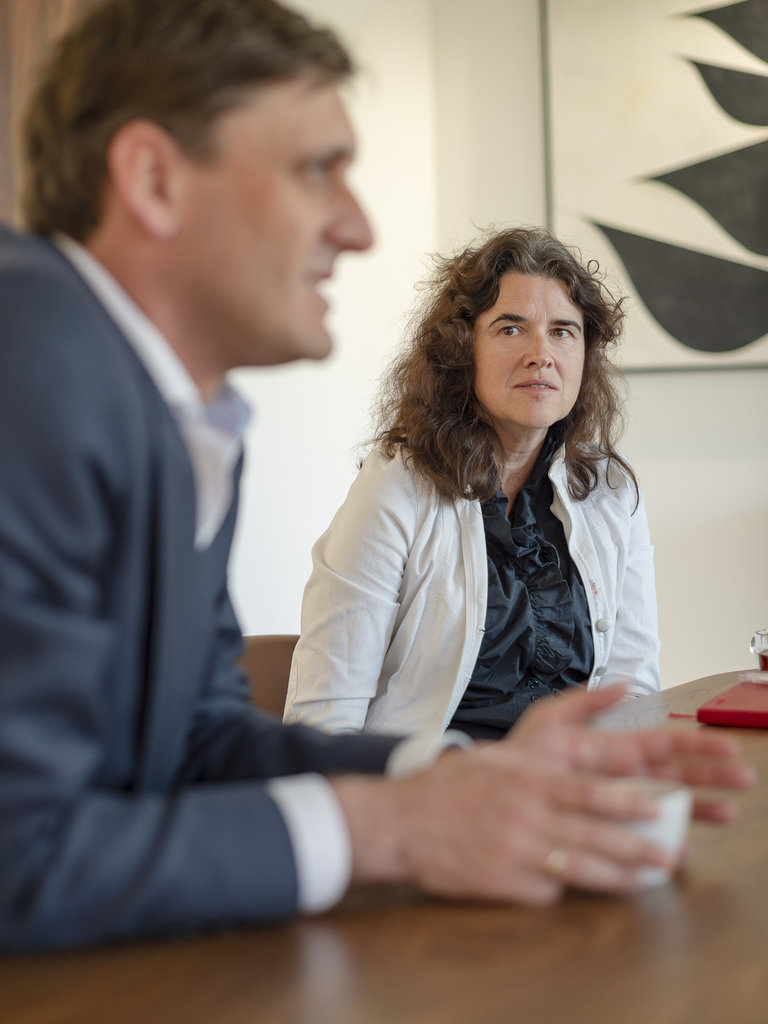
Standards laboratory
VSL focuses on the management and development of scientific standards, while NMi is involved in the practical applicability of these standards. VSL is the so-called ‘standards lab’. Both companies have their origins in the former Dutch government department for weights and measures (Dienst van het IJkwezen). Although privatised now, VSL still has a statutory remit. “Every country has a standards laboratory,” explains Fokkema, himself a physicist. “The task of such a laboratory is to manage the basic standards such as the metre and the kilogram as well as to develop new standards.”
New standards are often the outcome of technological developments, such as the rise of the LED light. “Consumers want to be able to compare it with the incandescent light bulb. In that case, you have to measure the energy consumption of such an LED lamp: how much light is produced and how much electricity is needed. We are developing the new standard for this.” A more recent development is the industry’s demand for a standard that can be used to measure liquefied natural gas (LNG).
Besides managing measurement standards, VSL also performs calibrations, e.g. of the ionisation chambers used for radiation equipment in hospitals. The company also carries out inspections of entire technical installations, where it checks whether the personnel are handling all the systems properly.
When you fill up, you want to be absolutely certain that a litre of petrol is really a litre.
Fabienne van Booma, Managing director NMi
Testing and certifications
NMi focuses on the practical applicability of standards: testing and certifying all kinds of measuring equipment based on international standards. It mainly targets the manufacturers: "Manufacturers of gas meters, petrol pumps and scales approach us for help in determining whether their meters are working as they should," says Van Booma. Returning to the example of the petrol pump: when you pay, you want to be sure that the 20 litres on the meter actually means that you're getting 20 litres. "We make sure of that." Everything can be traced back to the national measurement standards.
NMi is active throughout the world. "If you have an authorisation for the Netherlands, that's equivalent to having one for the entire EU," explains Van Booma, who has a degree in Business Economics. "Many Chinese and Japanese manufacturers that want to place their products on the European market often come to us for approvals." The social importance of both organisations is "enormous". "You can refuel in the Netherlands without worries, because you know for certain that there is an entire organisation behind it," says Fokkema.
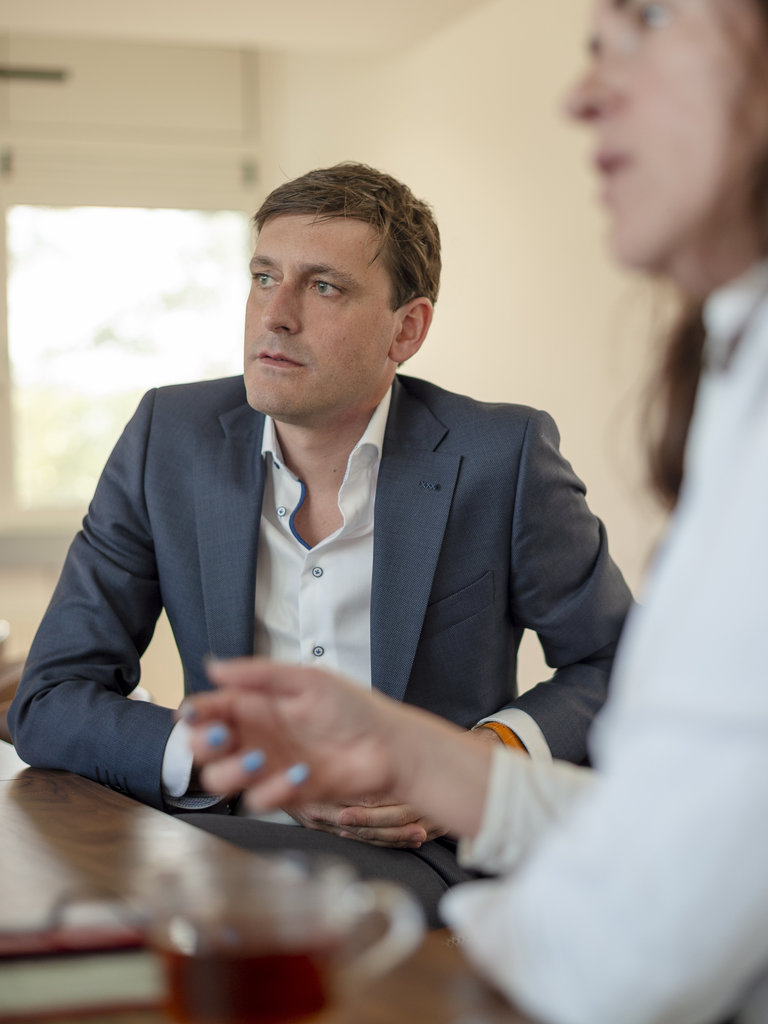
TU Delft Campus
NMi’s move to the TU Delft Campus has a number of advantages. “We would like to be closer to universities of applied sciences and universities of technology, because we are constantly on the look-out for new talent,” says Van Booma. But the fact that NMi will be located in the same building as VSL also plays a role. “We are two separate companies, but we complement each other well.” Van Booma expects this to lead to a cross-fertilisation effect: employees who start at VSL and then switch to NMi because they are more interested in the area of practical applicability, and vice versa. In a number of cases, Fokkema also expects effective collaboration between the organisations on a project basis.
Both Fokkema and Van Booma aspire to make their organisations more open to students and researchers so that their organisations can gain more publicity. The whole building will be “upgraded” to make it an attractive workplace. VSL has more than 110 employees at present, and the institute has been working together with TU Delft for some time now. “We also offer internships and graduation project opportunities. That’s a really interesting way to get acquainted with metrology,” says Fokkema.
I believe that metrology can play an important role in getting inventions to market more quickly and take them - in technical terms - to a higher Technology Readiness Level (TRL).
Vincent Fokkema, Managing director VSL
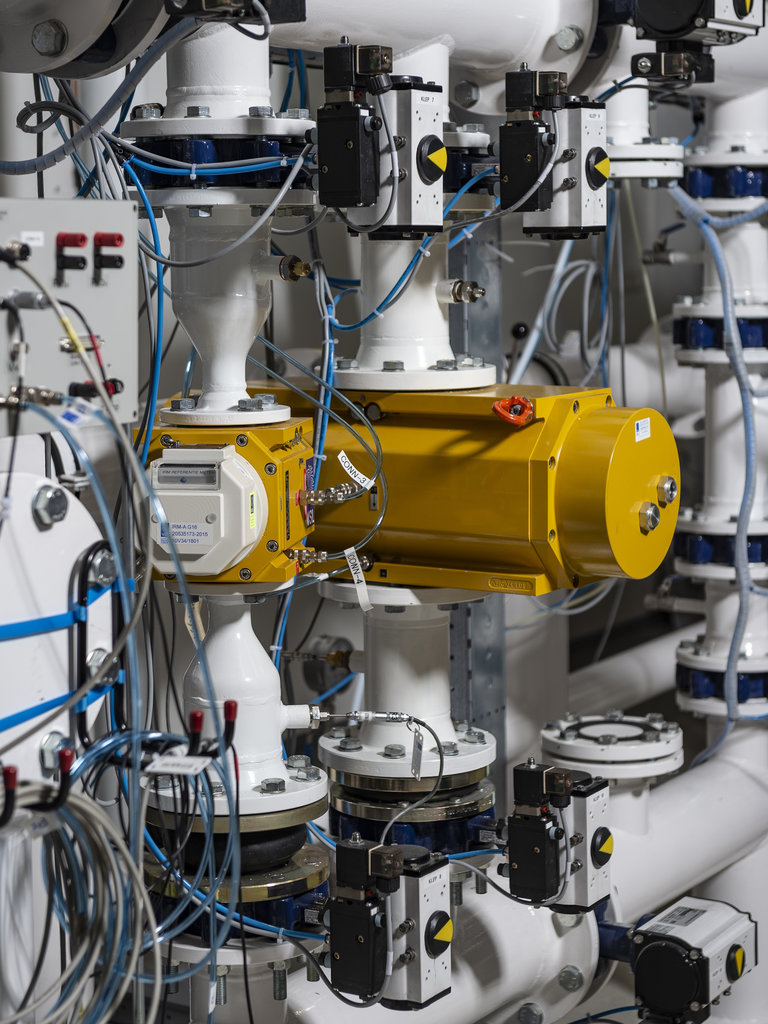
Metrology hotspot
There are plans to build a large auditorium. “I would love to draw students from all over the Netherlands to our organisation. In combination with the planned upgrade and a more open approach, we want to create an atmosphere focused on innovative solutions,” says Fokkema. According to Van Booma, it will be a true “metrology hotspot”. “That’s what we want to become.”
In addition, Fokkema hopes to use his expertise to boost start-ups. “I believe that metrology can play an important role in getting inventions to market more quickly and take them - in technical terms - to a higher Technology Readiness Level (TRL).” The new standards developed by VSL must always match the highest TRLs, and Fokkema believes that start-ups can benefit from the knowledge and facilities offered by VSL and NMi in this area.
The Thijsseweg building, where VSL has been housed for many years, was previously used by the former Geodesy faculty of TU Delft. It offers a number of advantages: it’s in a quiet location and the building is reinforced with additional piles. “As a result, we are less affected by disruptions or vibrations,” says Fokkema. The ground floor of the building is given over mostly to high-tech laboratories. And this will be further expanded, now that NMi is also housed here.
I always refer to us as De Nederlandsche Bank of the standards
Vincent Fokkema, Managing director VSL
Laboratories
At VSL, research takes place in high-quality laboratories: air-conditioned, free from vibration and dust and equipped with Faraday cages for protection against external radiation. “If we develop a new standard, we must deliver the highest quality possible. It must be very precise, often down to lots of decimal places. Our laboratories offer the ideal preconditions for performing such research.”
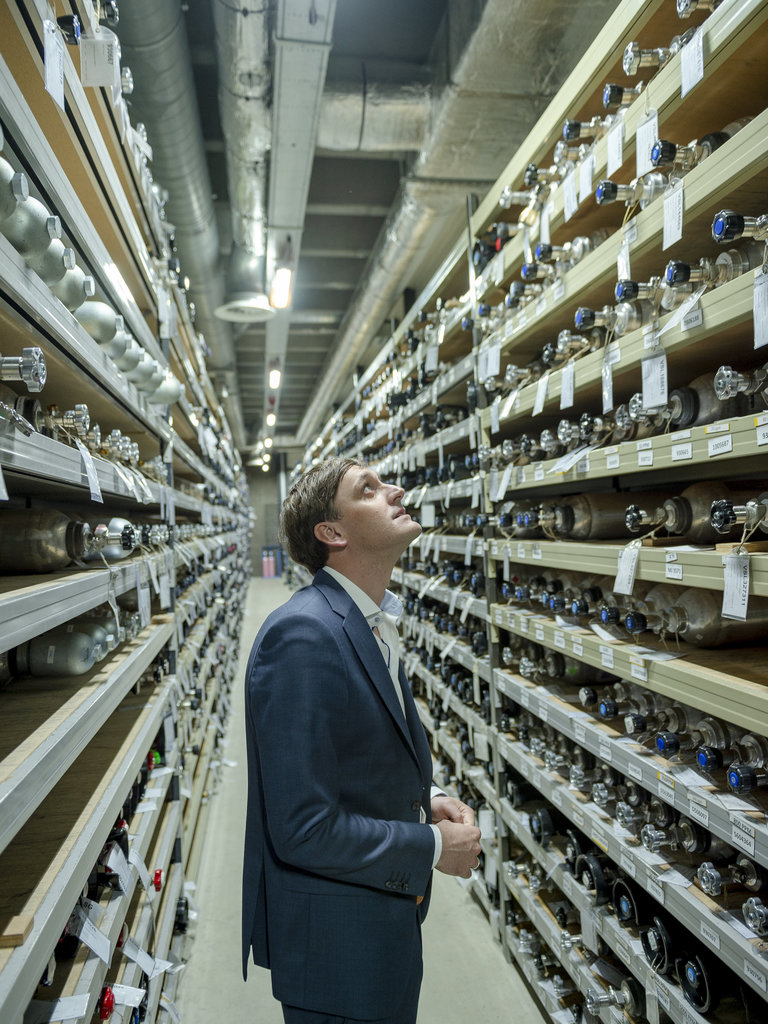
Original kilogram
Not everything is high-tech. For example, safely stored inside a safe lies the original Dutch kilogram, a copy of the official kilogram kept in Paris. The metre-long platinum-iridium cylinder and the atomic clock are also stored here. “I always refer to us as De Nederlandsche Bank of the standards,” says Fokkema. At present, the metre is calculated based on physical constants and from next year onwards, this will also be done for the kilogram. Until then, the content of the safe is of “immeasurable value”, according to Fokkema.
Equally special is what Fokkema calls the “wine cellar”: next to one of the laboratories, there is a large storage space filled from top to bottom with cylinders containing all kinds of gas mixtures. Neatly labelled and arranged in racks, they are used, for example, for calibrating the breathalyser tests for the police.
First Dutch Innovations
NMi and VSL are part of First Dutch Innovations, which is also located at Thijsseweg. First Dutch Innovations, the company of former Argos Director Peter Goedvolk, acquired a majority share last year in TNO Bedrijven, to which NMi and VSL are affiliated.
While the former TNO Bedrijven mainly fulfilled a public and social role with a strong focus on maintaining the knowledge level of the affiliated companies, First Dutch Innovations adds something new to this: the commercialisation of high-quality knowledge. It is committed to the development and growth of innovative companies in the Life Sciences, Sustainable Energy and TIC (Testing, Inspection and Certification) markets. With this, the company wants to shape innovation in the Netherlands in a sustainable way.
First Dutch Innovations is made up of a large number of companies. With VSL and NMi, First Dutch Innovations positions itself strongly in the international metrology sector. In view of the growing demand for independent certification and stricter regulations, First Dutch Innovations aims to further strengthen its position in the field of TIC in the years ahead.
Delft historical centre
Besides the advantages of the building itself and the proximity of educational institutions, easy accessibility and the city of Delft have also played a positive role in NMi’s decision to move to the TU Delft Campus. “We get a lot of international visitors who find it very enjoyable to spend an evening in the historic city centre,” says Van Booma.
“Naturally, their visits are mostly related to our work, but it’s also about social interaction and the city centre is perfect for this. You can eat out with customers and the atmosphere of the old city makes it just that extra bit special. Our foreign guests love the fact that everything is within walking distance.”
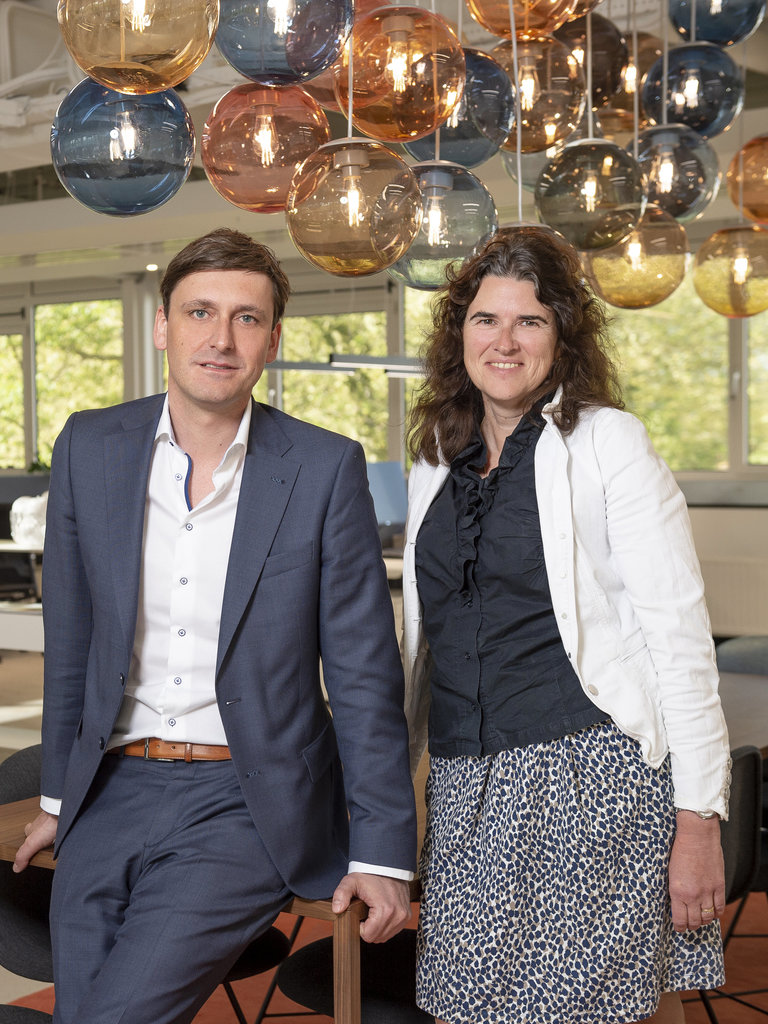
Our companies are fully committed to assisting with the biggest challenges of our time
Vincent Fokkema, Managing director VSL
Future
Both Fokkema and Van Booma expect scientific and technological developments to generate enough work in the coming years. The energy transition will result in all kinds of new assignments. Green electricity, generated via solar cells and wind turbines, causes the mains current to fluctuate constantly. This creates the need for different measuring instruments. Natural gas will gradually disappear. “In fact, it won’t surprise us if hydrogen soon starts flowing through the gas grid. That will also have to be measured in a correct manner,” says Fokkema.
In the medical sector as well, there is plenty of demand for new measurement standards. For example, it is possible to use proton therapy to deliver highly accurate radiation treatment to cancer patients. This means that it is also necessary to measure the radiation dose in a very accurate manner.
VSL is a company with two sides: on the one hand, it is a renowned, high-level scientific institute, monitoring the fundamental metrology knowledge base. “But always with an eye to the commercial aspect. Whatever we develop, we also want to apply commercially,” says Fokkema.
Smart city
Van Booma also sees numerous opportunities for the future. “New developments seem to be taking place at an increasingly rapid pace, but we shouldn’t lose sight of existing applications either,” she says. “For example, scales will still be around for a while.” The company also invests in the possibilities offered by information technology: “Think of smart-city issues such as measuring crowd sizes to properly manage visitor flows at festivals.”
“Our companies are fully committed to assisting with the biggest challenges of our time,” concludes Fokkema. “With regard to the climate, we need atmospheric sensors that can measure how the earth is heating up. Advanced measuring equipment is required for health care as well as for the energy transition. You need VSL and NMi for all of this.”